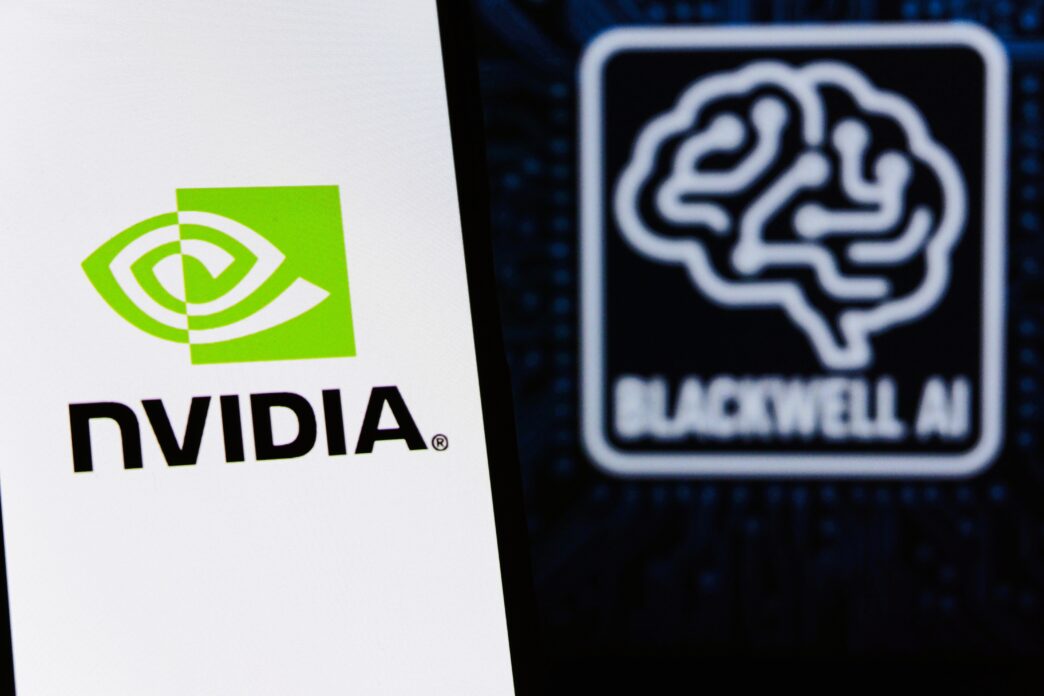Executive Summary
- President Trump announced that Nvidia’s most advanced Blackwell artificial intelligence chips will be reserved exclusively for U.S. companies.
- This declaration suggests a tightening of restrictions on cutting-edge semiconductor exports, contrasting with Nvidia’s recent plans to supply these chips to South Korea.
- While the most advanced Blackwell chips are withheld, Trump did not entirely rule out Chinese companies obtaining less capable versions, a prospect that has drawn strong criticism from China hawks in Washington.
The Story So Far
- President Donald Trump’s announcement to reserve Nvidia’s most advanced AI chips exclusively for U.S. companies reflects an overarching national security strategy to maintain American technological dominance, particularly over China. This policy tightens previous indications of expanding AI exports to allies, now emphasizing a more stringent restriction on cutting-edge components. The decision also underscores the ongoing tension between the commercial interests of companies like Nvidia, which had plans to supply these chips internationally, and the concerns of U.S. officials about preventing China from enhancing its military and AI capabilities.
Why This Matters
- President Trump’s announcement to reserve Nvidia’s most advanced Blackwell AI chips exclusively for U.S. companies signals a significant tightening of export controls, aiming to solidify American technological dominance over rivals like China and potentially disrupting global tech trade relationships with allies, while also sparking debate over the extent of any permissible chip access for Chinese firms.
Who Thinks What?
- President Donald Trump states that Nvidia’s most advanced Blackwell AI chips will be reserved exclusively for U.S. companies to maintain American technological dominance, though he is open to less capable versions potentially going to Chinese firms.
- Nvidia, despite previous plans to supply Blackwell chips to allies like South Korea, acknowledges the U.S. export restrictions but views access to the Chinese market as crucial for funding U.S.-based research and development.
- China hawks, such as Republican Congressman John Moolenaar, express strong opposition to any version of Blackwell chips reaching Chinese firms, fearing it would significantly enhance China’s military and AI capabilities.
President Donald Trump has announced that Nvidia’s most advanced Blackwell artificial intelligence chips will be reserved exclusively for U.S. companies, signaling a potential tightening of restrictions on cutting-edge semiconductor exports globally. The remarks, made during a “60 Minutes” interview and to reporters on Sunday, November 2, 2025, indicate a policy aimed at maintaining American technological dominance, particularly over China, despite recent plans for broader AI exports and a reported deal to supply the chips to South Korea.
Trump’s Stance on Advanced Chips
President Trump explicitly stated that the most sophisticated Blackwell chips would not be made available to any country other than the United States. This position suggests a more stringent approach to AI chip exports than previously indicated by U.S. officials, potentially barring China and other nations from accessing these high-end semiconductors.
The announcement follows a July 2025 blueprint from the Trump administration, which sought to expand AI exports to allies while loosening environmental rules to bolster America’s technological lead. However, the new statements emphasize a selective restriction for the most advanced components.
International Implications and Nvidia’s Position
Just last Friday, Nvidia had announced plans to supply over 260,000 Blackwell AI chips to South Korea, including major businesses like Samsung Electronics. This prior disclosure appears to contrast with President Trump’s subsequent declaration of exclusive U.S. access to the top-tier chips.
Regarding China, President Trump clarified that while the most advanced Blackwell chips would be withheld, he did not entirely rule out the possibility of Chinese companies obtaining a less capable version. He stated they could “deal with Nvidia but not in terms of the most advanced.”
Nvidia CEO Jensen Huang stated last week that the company has not sought U.S. export licenses for the Chinese market. Huang noted that Beijing has made it “very clear that they don’t want Nvidia to be there right now,” adding that access to China is crucial for funding U.S.-based research and development.
Concerns from China Hawks
The potential for any version of Blackwell chips to reach Chinese firms has drawn sharp criticism from Washington’s China hawks. Republican Congressman John Moolenaar, who chairs the House Select Committee on China, likened such a move to “giving Iran weapons-grade uranium,” expressing fears over supercharging China’s military capabilities and accelerating its AI development.
President Trump had previously hinted at discussing the chip issue with Chinese President Xi Jinping ahead of their summit in South Korea last week. However, he later confirmed that the topic ultimately did not arise during their discussions.
Outlook
President Trump’s latest remarks underscore a firm commitment to safeguarding America’s lead in critical artificial intelligence technology by controlling access to the most advanced semiconductors. The statements introduce new complexities for global technology trade and highlight the ongoing tension between economic engagement and national security concerns in the U.S.-China relationship.








